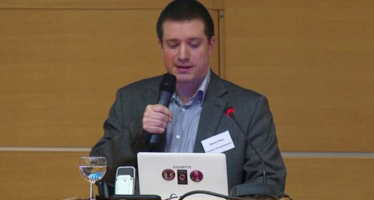Iran: Prevent Woman’s Execution for Adultery
![]()
Judiciary Should End Stoning as a Punishment and Halt All Executions
(London) – The Iranian judiciary should halt plans to execute a woman convicted of adultery, Human Rights Watch said today. Sakineh Mohammadi Ashtiani, a 43 year-old mother of two who was previously punished with flogging for having an “illicit relationship,” faces imminent death by stoning after a second court convicted her of adultery during marriage.
On May 15, 2006, a criminal court in East Azerbaijan province found Ashtiani guilty of having an “illicit relationship” with two men following the death of her husband. She was sentenced to flogging and was given 99 lashes. In September 2006, during the murder trial of a man accused of killing Ashtiani’s husband, another court reopened an adultery case based on events that allegedly took place before her husband died and eventually convicted her of “adultery while being married.” During the trial, Ashtiani retracted a confession she had made during a pretrial interrogation, alleging that she had been forced to make the confession under duress. She has continued to deny the adultery charge.
“Death by stoning is always cruel and inhuman, and it is especially abhorrent in cases where judges rely on their own hunches instead of evidence to proclaim a defendant guilty,” said Nadya Khalife, Middle East women’s rights researcher at Human Rights Watch. “Iran should immediately put a stop to this execution – and all executions.”
Under Iran’s penal code, adultery is a “crime against God” for both men and women. It is punishable by 100 lashes for unmarried men and women, but married offenders are sentenced to death by stoning. Cases of adultery must be proven either by a repeated confession by the defendant or by the testimony of witnesses – four men or three men and two women.
However, Iran’s penal code also allows judges in hodud (morality) crimes such as adultery to use their own “knowledge” to determine whether an accused is guilty in the absence of direct evidence.
Ashtiani’s lawyer, Mohammad Mostafaei, said in a recent posting on his blog, Modafe’, that two of the five judges found Ashtiani not guilty during the second trial. The three remaining judges found her guilty of adultery on the basis of their own “knowledge.” Ashtiani was convicted by a majority of votes.
The Supreme Court confirmed Ashtiani’s death sentence on May 27, 2007. She has exhausted the legal appeals process and the judiciary has denied her repeated requests for clemency.
Mostafaei issued a statement on his blog several days ago indicating that he fears his client could be executed at any moment. She is being held in Tabriz prison.
Human Rights Watch opposes capital punishment in all circumstances because of its cruel, inhumane, and irreversible nature. The International Covenant on Civil and Political Rights, to which Iran is a party, requires even those states that have not yet abolished the death penalty to restrict it to the “most serious crimes.” The United Nations General Assembly has called upon all states to introduce a moratorium on the use of the death penalty.
Related Articles
UNGASS 2016: what’s at stake? Interview whit Peter Sarosi
![]()
UNGASS 2016 will not be a turning point, says the Reporter Rights Foundation Director Director, Peter Sarosi. “But it is true that civil society is stronger and this is positive. The reform will not by the UN, the reform is driven by local and national policies”
Ireland faces biggest challenge as Brexit becomes reality
![]()
Exclusion from the EU customs union and single market will have a devastating impact on seamless trade and all-Ireland supply chains
UK ELECTION 2017: ‘A seismic shift has occurred in British politics’
![]()
The 2017 general election was a once-in-a-generation opportunity that the Tories fumbled and Labour exploited to remarkable effect




